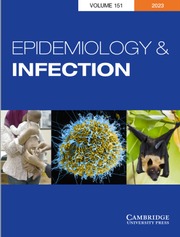Article contents
A method of testing the stability of finely divided emulsions of oils and fats, with reference to the value of yolk of egg, and decoctum chondri as emulsifying agents
Published online by Cambridge University Press: 15 May 2009
Extract
1. A new test for the stability of emulsions of oils or fats is described. It is based on the observation that, when stable emulsions of oils and fats in a fine state of division are mixed with lethal quantities of bacterial toxins and incubated for 30 min. at body temperature, and the mixtures when injected into guinea-pigs do not cause death.
2. Emulsions of olive oil (50%) made with either egg yolk or Irish moss do not protect animals against the effects of lethal doses of bacterial toxins, and are therefore regarded as unstable as judged by this standard.
- Type
- Research Article
- Information
- Copyright
- Copyright © Cambridge University Press 1939
References
REFERENCES
- 1
- Cited by




